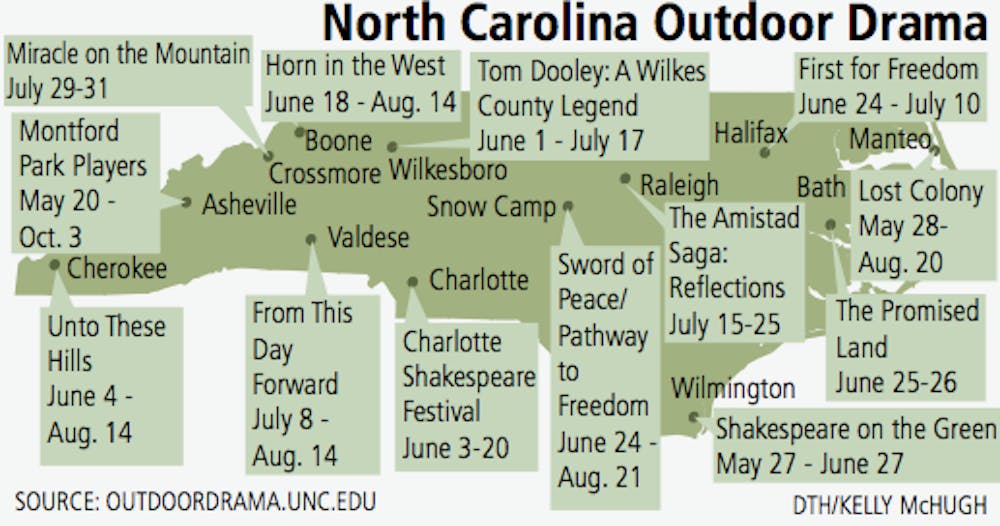Each summer, cannons sound, swords clash and actors spout rapturous monologues as North Carolina outdoor theaters host more than 153,000 spectators annually.
The trend of American outdoor theater originated in North Carolina, where renowned UNC alumnus Paul Green wrote “The Lost Colony” — the nation’s oldest outdoor drama — in 1937.
“Not many schools can boast that they were the birthplace of a new art form,” said Susan Phillips, manager of the Institute of Outdoor Drama, based at UNC-Chapel Hill since it’s founding in 1963.
However, the University will lose a vital piece of its dramatic clout this fall.
The institute, which will move to East Carolina University, is scheduled to begin its transition Aug. 1.
Spawned from Green’s legacy, the institute has been the leader in outdoor theater research, from marketing techniques to production design and writing trends.
“Their demographic work allows me to cross-check and spot trends to help me market in a different way,” said John Russell, managing director for The Montford Park Players in Asheville.
With the loss of the institute, UNC will drop a 47-year position as the central hub of outdoor theater in the country.
But the institute was not maliciously sought and plundered by the Pirates. Rather, it is moving with the purpose of survival in the face of recent budget cuts, including $6.6 million to centers and institutes at UNC.




